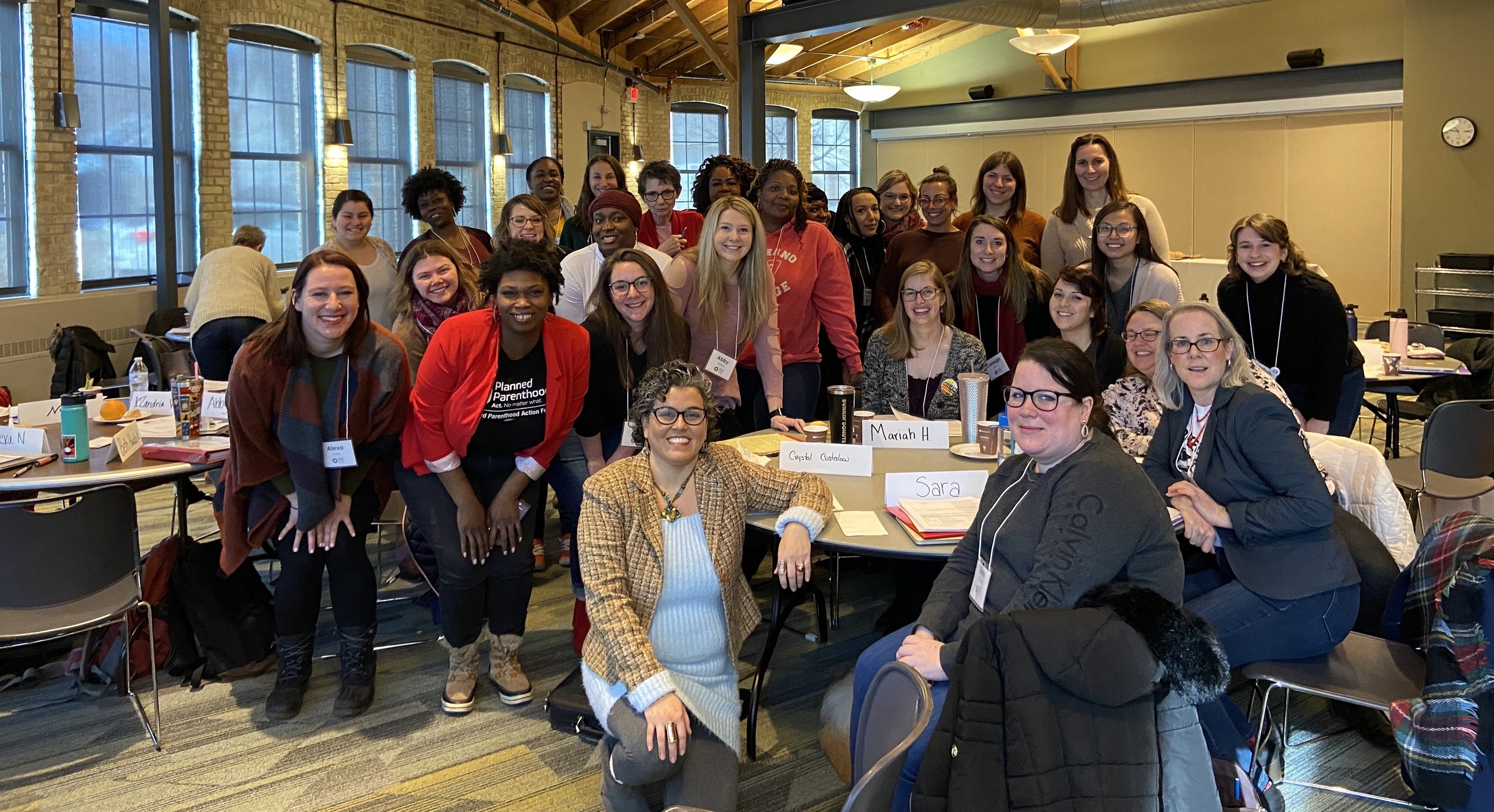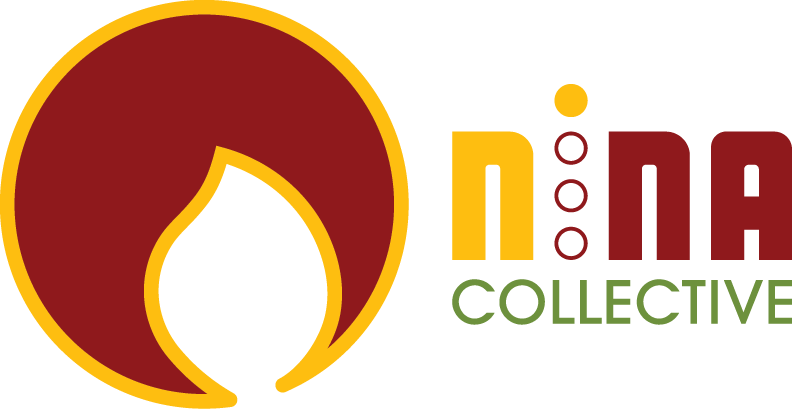
CASE STUDIES
Through our collaborative efforts, we co-create and transform systems with an unwavering commitment to racial justice, co-liberation, and belonging.
Racial Equity Learning Community for Bucks & Montgomery Counties
-
Bucks and Montgomery Counties, located outside of Philadelphia, are among the wealthiest counties in Pennsylvania, and are experiencing growth in both overall population and racial and ethnic diversity. With an increased interest and need to more explicitly address issues of race and inequity, the idea for an equity-focused learning community was born in 2020. An Advisory Council led by the Bucks-Mont Collaborative, Tri-County Network, and Interagency Council of Norristown reached out to nINA with an idea to convene a multi-sector Racial Equity Learning Community (RELC) to deepen organizational and collective capacity to advance racial equity and justice.
-
The RELC was initially intended for community-based organizations working mostly in social and human services. In the design phase, local RELC planners connected with Montgomery County government, specifically the County Commissioner’s office, who expressed an interest in participating in the RELC. From there, the Community Cohort and Government Cohort were designed as parallel learning communities working through a similar curriculum with sector-specific customizations. In addition to nINA’s non-profit and government planning partners, the RELC engaged a team of coaches with expertise in racial equity to support the RELC organizations through the learning year.
-
For the first year, we piloted a 9-month learning community for which the nINA Collective facilitated 3-hour virtual workshops every-other month. The curriculum followed nINA’s methodology of Co-Create, Decolonize, Deconstruct, Collaborate, incorporating modules of community building, historic and current structural racism, navigating organizational change, racial equity tools, action planning, and much more. During the months when we were not facilitating workshops, participants met with coaches to apply their learnings to their organizations and teams.
-
After the first year, we facilitated a robust evaluation process. We learned that participants were very satisfied with the content, but there were some practical changes that were suggested. There was still significant demand for the Learning Community, so we offered it for a second year. In this year, we facilitated monthly meetings that were two hours long at the suggestion of past participants. Additionally, the coaches had requested additional guidance and support for their work with participants, so we developed a Coaching Guide and Participant Workbook to deepen the learning and provide more structure for participants. At the end of this second year, more than 400 people have participated in over 100 hours of training and have completed Racial Equity assessments and action plans for their teams and/or organizations.
DONNA L. RICHEMOND
Chief of Diversity, Equity & Inclusion
Montgomery County, PA
“The nINA Collective brought honesty, intentionality, and authenticity to our county’s racial equity journey. The approach taken to nurture a safe space for equity centered professional learning and courageous conversations was appreciated. Not only were the sessions impactful for our team members, but the consultation and coaching for leadership were just as powerful. The nINA Collective facilitators were amazing at leading our conversations and sessions with great skill, humility, and a thorough understanding of our team dynamics. The training sessions offered were well executed with relevant content that was tailored to meet our needs. The structure and techniques used to frame and unpack the information, the truthful and compassionate delivery, and the creation of a trusting environment provided a model that will definitely impact our work as we continue our journey toward becoming a more equitable, just, and inclusive workplace and service provider. ”
Assessment & Racial Equity Planning for Organic Valley
-
In the summer of 2020, Organic Valley (OV) was one of many companies that began to more deeply examine its organizational position on diversity, equity, and inclusion. OV is a cooperative organization with a history of disrupting the status quo in the food and agriculture industries, and many in the co-op felt that OV was out of alignment with its values regarding equity and inclusion, across its workforce, farmer-owner membership, and customer base.
-
nINA began its work with OV as a phased approach, co-designed with a small group of management-level leaders that ultimately formed a Strategy Team. One of the first elements of the partnership was to form a Racial Equity Core Team that included representatives from across the co-op in positions of formal and (mostly) informal leadership who were ready and able to guide and advise the work ahead.
-
Our phased approach included community and capacity building and a multi-faceted assessment followed by pilot projects and action planning. In the community building phase, we facilitated the creation of a racial equity vision and values and conducted a learning and capacity building series for groups of employees. The assessment phase included a co-op wide survey, policy and practice review, and interviews with members of leadership. nINA then provided a report and recommendations for growing and continuing from the foundation built in these early phases.
-
In 2022, OV onboarded new Racial Equity Core Team members and began a pilot project to assess challenges and opportunities related to racial and gender diversity at all levels of the workforce. In 2023, OV developed an organizational Diversity, Equity, Inclusion, and Belonging (DEIB) Plan that focuses in the following areas: DEIB Infrastructure; Equitable Access (to agriculture and organic food); Learning and Capacity Building; and Retention and Culture.
KEN LAMMERSFELD
Chief Executive Officer - Park Bank
Madison, WI
“We launched our Diversity, Equity, and Inclusion Committee late in 2019 and were successful in bringing some initial training and awareness to our associates. Our internal leadership and committee members accomplished a lot in a short period of time, and after a strategic planning summit, recommended we work with an outside subject matter expert to build a roadmap for this work moving forward. We engaged Nina Collective to assist us in conducting a DEI readiness assessment and to build a plan for ongoing improvement. Their process and facilitation with our associates and senior leaders was comprehensive and educational, and their findings and recommendations for implementation have us better prepared than ever for success! I would highly recommend any organization looking to either start, enhance, or maintain their DEI strategies work with Nina Collective. ”
Curriculum Development at Georgetown University
-
The McCourt School of Public Policy offers a week-long orientation for incoming students that focuses on understanding Diversity, Equity, Inclusion (DEI) at the personal, interpersonal, institutional, and structural levels. While they had a robust curriculum to support the institutional and structural understanding and application of these concepts to their future work as policy makers, they were challenged by supporting their very international student population with a foundational shared analysis. Additionally, there was a desire to have a clearer thread of learning goals and outcomes running through each session
-
The nINA Collective interviewed all of the faculty who have been part of this orientation in past years to understand what went well and what could be improved. We came to understand that the major tension was that many US based students have had extensive opportunities to learn about and discuss DEIB, many international students had not had the same conversations in their countries of origin. This made creating shared content challenging but critical.
-
Based on this understanding, we co-created a curriculum model that was focused on key concepts of Othering, Belonging, and Bias - which are generally agreed upon as human experiences rather than specific to one national context. We piloted this curriculum with a group of current student leaders and took their feedback and adapted the content based on their critiques and suggestions which ultimately improved the curriculum and made it relevant and applicable to incoming students.
-
The final version of the curriculum was rooted in McCourt’s Foundational Skill Set: Engaging with Bias. It supported students in applying their understanding of bias to specific policy issue areas, and it also gave students the tools to identify their values as policy-makers, and to use those values as the lens through which they can foster DEI throughout their school experience. We also continued to work with faculty who were facilitating the other modules to ensure that each session built off of the last and had a clear thread throughout the orientation week. This curriculum is now a part of the orientation week and can be facilitated by faculty for the years to come.



